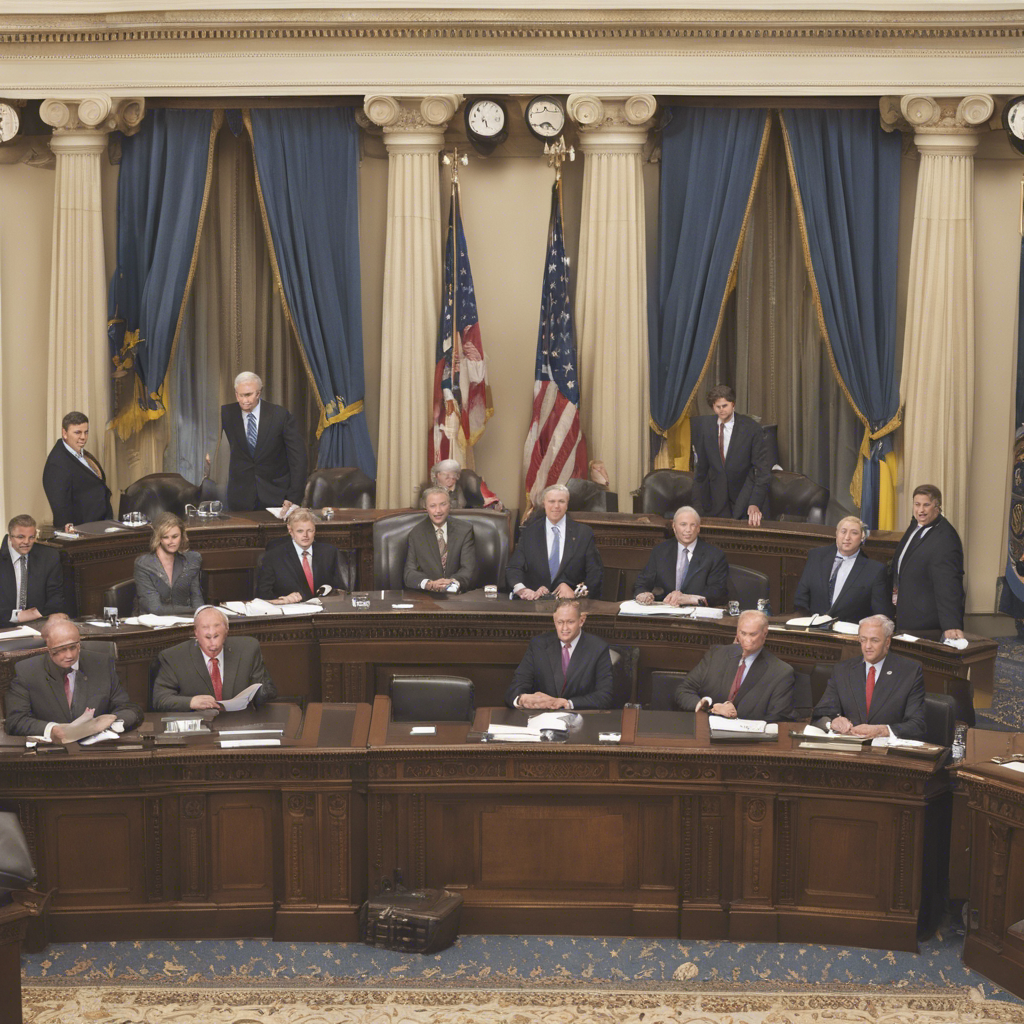Senate Republicans Block Ukraine and Israel Aid Bill

Republicans demand border compromises, leading to the blockage of a $110bn aid package for Ukraine, Israel, and Gaza.
Senate Republicans have blocked the passage of an aid bill for Ukraine, Israel, and Gaza after failing to secure border compromises they sought in exchange. The $110bn package included $61bn for Ukraine, as well as funds for Israel and aid for Gaza. Republicans insisted that any aid to Ukraine be tied to sweeping US immigration and asylum reforms. With US funds for Ukraine running out, the vote throws uncertainty into the future of aid for Ukraine and sends lawmakers back to the negotiating table with just days to go until Congress has scheduled winter break.
Republicans’ Demand for Border Compromises
Republicans are demanding border compromises in exchange for passing the aid bill for Ukraine, Israel, and Gaza. They insist that any aid to Ukraine be tied to sweeping US immigration and asylum reforms. This demand has complicated negotiations with Democrats, who are overwhelmingly in favor of aid to Ukraine but have different priorities regarding immigration and border security. The Republican demand for additional changes to asylum rules has further complicated the negotiations, leading to the blockage of the aid bill.
Republican Opposition to Aid for Ukraine
Every single Republican Senator voted against advancing the aid bill, along with independent Senator Bernie Sanders. Sanders expressed reservations about the legislation, particularly regarding the inclusion of billions in military aid for Israel. He criticized the Israeli government’s ongoing campaign in the Gaza strip, stating that it was immoral, in violation of international law, and that the United States should not be complicit in those actions. The opposition from Republicans and Sanders highlights the political divisions surrounding the aid bill.
Biden’s Efforts and Frustrations
US President Joe Biden expressed his willingness to make significant compromises on the border in order to get the aid bill passed. He emphasized the urgency of the situation, stating that “Republicans in Congress are willing to give Putin the greatest gift he could hope for” by blocking the aid. However, despite Biden’s efforts, the bill failed to advance. Senate Majority Leader Chuck Schumer delivered an emotional plea to his colleagues, urging them to “rush to the defense of democracy” in Ukraine. Frustration among Democrats is growing as negotiations continue to stall.
Uncertainty and Future Negotiations
The failure to pass the aid bill throws uncertainty into the future of aid for Ukraine. While more negotiations are expected to follow, it remains unclear whether any progress can be achieved before Congress breaks for the holidays next week. Some Senators believe that a solution within that timeframe is unlikely. Senate Minority Leader Lindsey Graham stated that he believes more negotiations are needed and that it will require President Biden’s leadership to move forward. The inclusion of significant border security measures remains a sticking point for House Speaker Mike Johnson, further complicating the prospects of passing the aid bill in the House of Representatives.
Conclusion:
The blockage of the aid bill for Ukraine, Israel, and Gaza by Senate Republicans highlights the deep divisions and political maneuvering surrounding the issue. The demand for border compromises and the inclusion of significant border security measures has complicated negotiations and led to the failure of the bill to advance. The future of aid for Ukraine remains uncertain as lawmakers return to the negotiating table with limited time before Congress breaks for the holidays. The consequences of the aid bill’s blockage could have far-reaching implications for Ukraine’s ability to resist Russian aggression and regain control of occupied territory.

